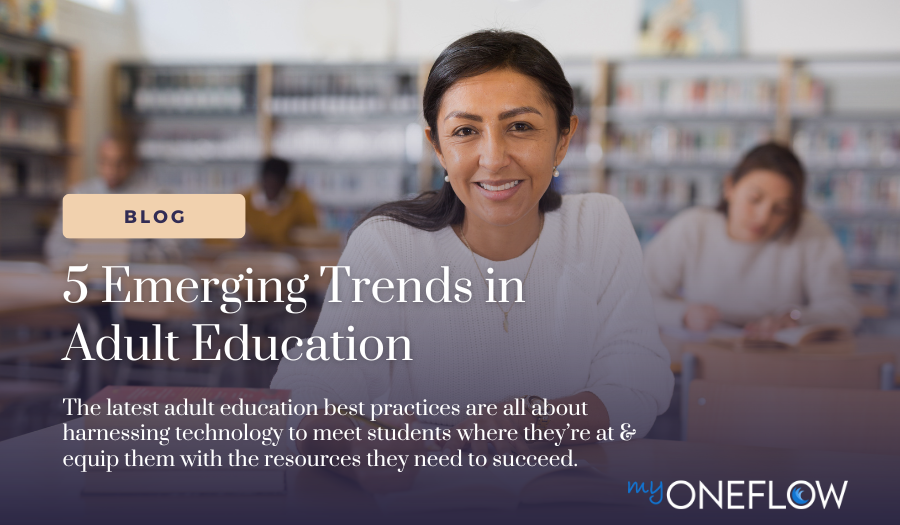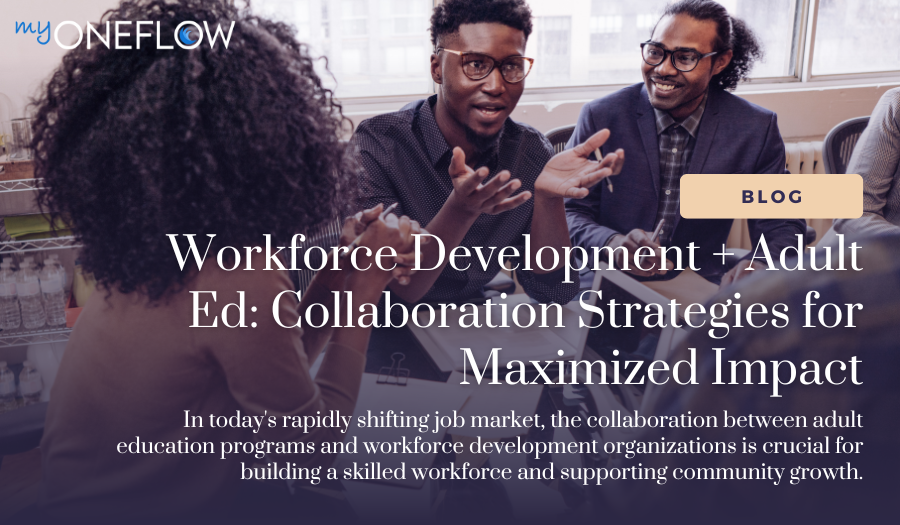5 Emerging Trends in Adult Education
In today’s rapidly changing world, adult educators must be on the cutting edge of education trends to give their students the highest chance for...
2 min read
 Emily Sleister
Updated on September 15, 2025
Emily Sleister
Updated on September 15, 2025
.jpg)
September 16-20, 2024 is National Adult Education & Family Literacy Week! This campaign was started by the National Coalition for Literacy (NCL) in 2009 to spread public awareness about adult education and literacy’s impact on the economic and societal well-being of individuals and families.
At myOneFlow, many of our customers work at the forefront of adult education. To show our support, we’ve rounded up ten statistics demonstrating the need for and the importance of improved access to these services.
Despite their importance, adult education programs are underfunded and understaffed. This week is the perfect time to take a few extra steps towards supporting adult education and literacy programs in your network.
One of the most prominent barriers to success for adult ed programs is a lack of modern technological solutions. myOneFlow’s continuing education software helps adult ed programs increase efficiency, so staff spends less time on manual tasks and more time serving students. Technology can also make adult ed programs more accessible and equitable, effectively increasing the scale and reach of programs in their community.
Could your adult ed program benefit from a modern technological solution? Contact our team today to schedule a personalized demo.
Sources

In today’s rapidly changing world, adult educators must be on the cutting edge of education trends to give their students the highest chance for...

Adult learners make up almost 40% of the student population in higher education, and adult education is critical to the overall reskilling and...

Effective workforce systems are rooted in collaboration. Under the Workforce Innovation and Opportunity Act (WIOA), workforce development agencies...